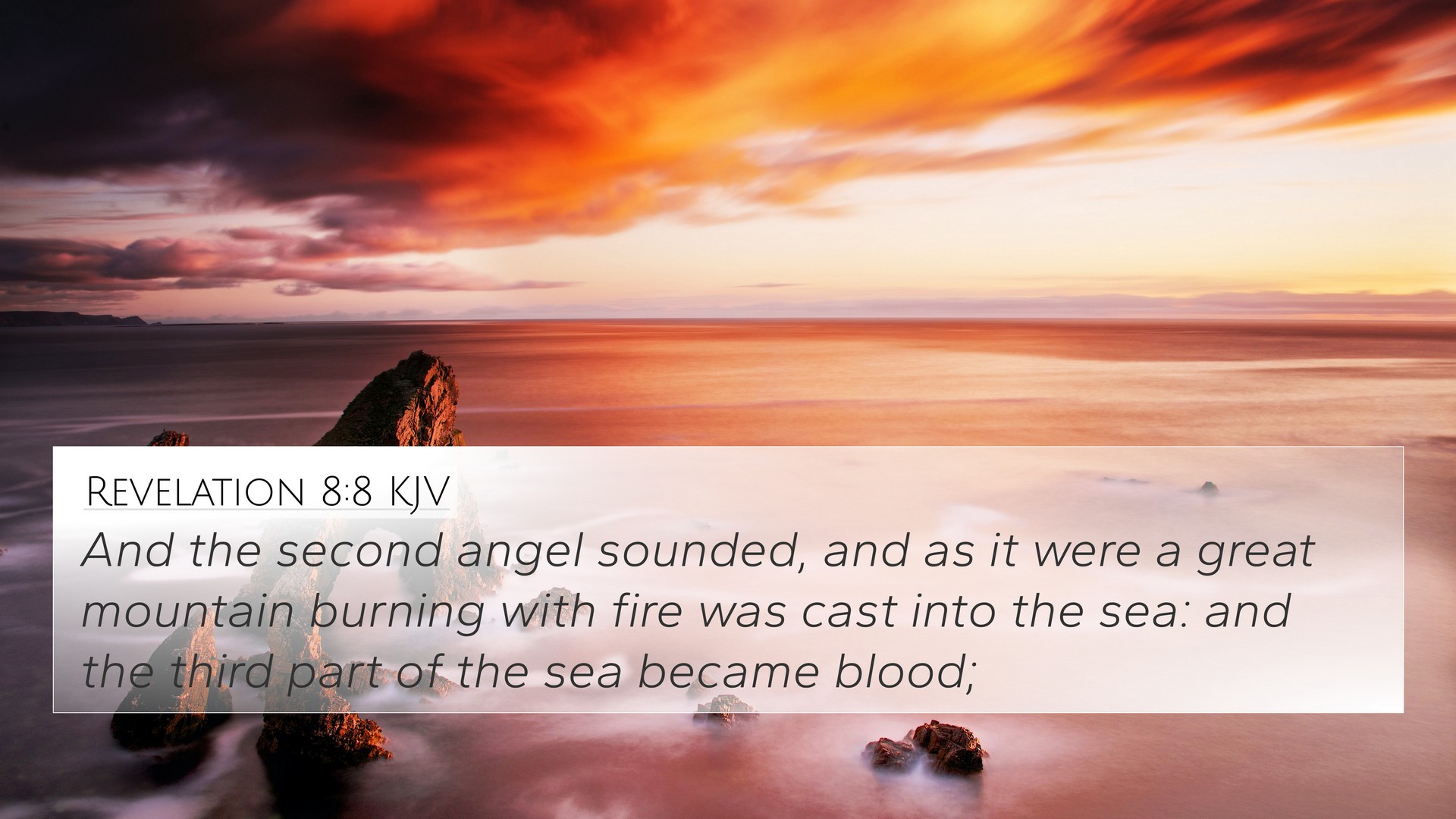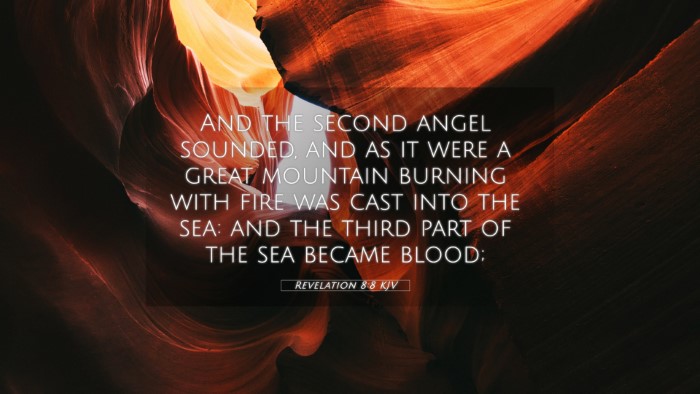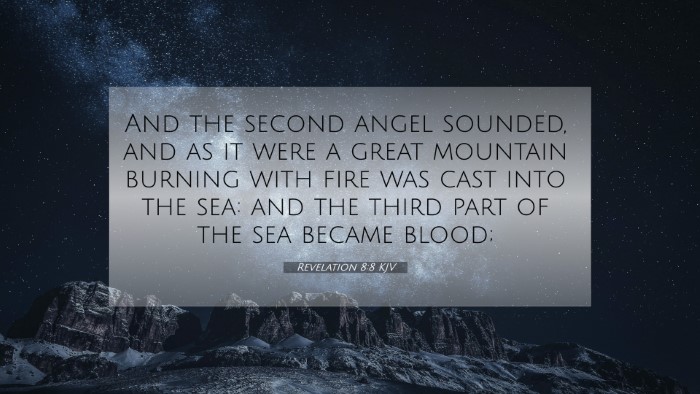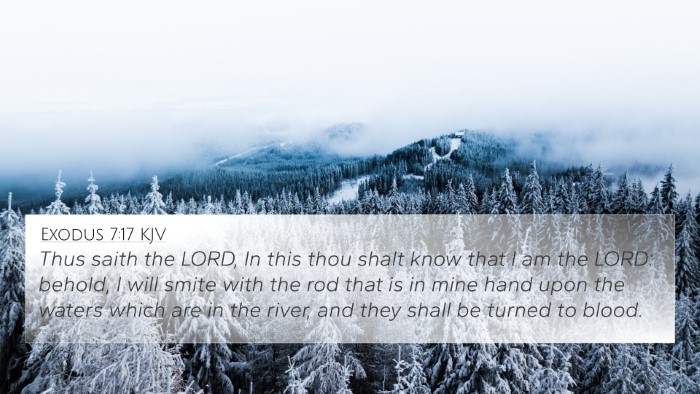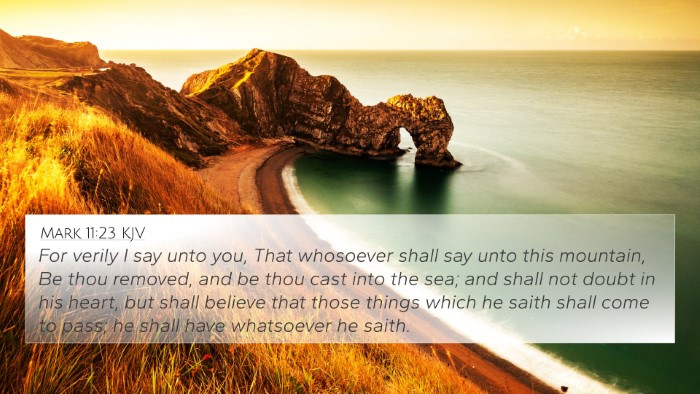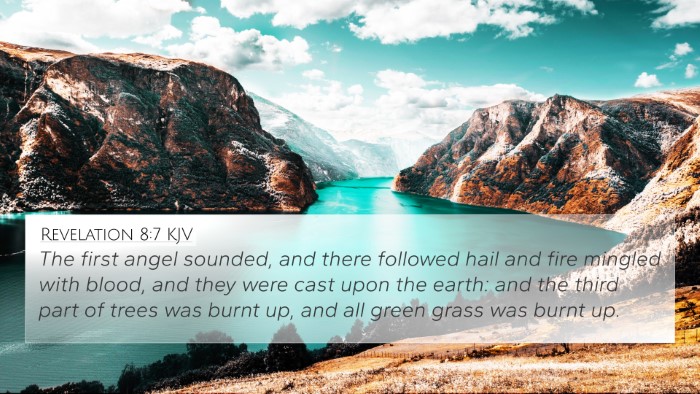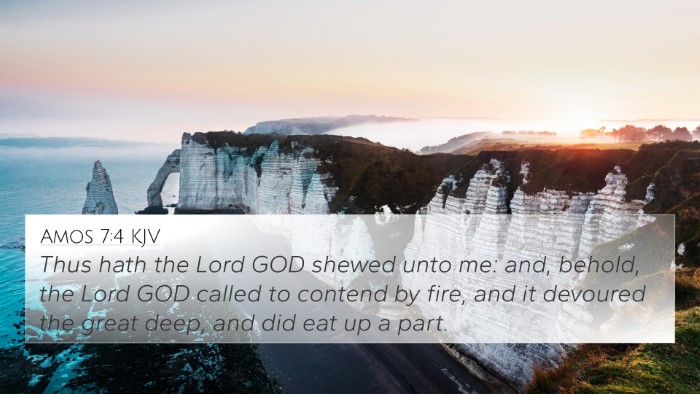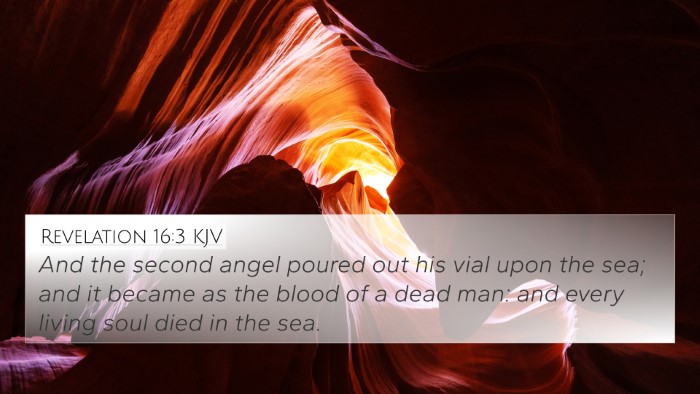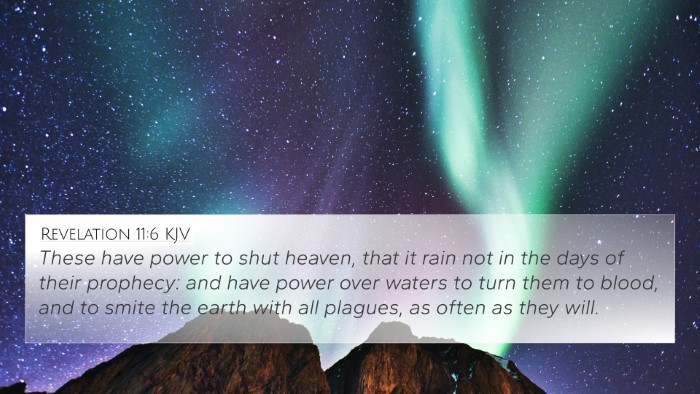Understanding Revelation 8:8
Revelation 8:8 states, "And the second angel sounded, and as it were a great mountain burning with fire was cast into the sea: and the third part of the sea became blood." This verse serves as a powerful and vivid symbol within the apocalyptic context of the Book of Revelation. Below, we explore its meaning through insights from various public domain commentaries, providing a comprehensive look into its significance.
Verse Meaning
This verse depicts the sounding of the second trumpet, indicating a moment of divine judgment. The image of a mountain burning with fire conveys the idea of a significant and catastrophic event, reminiscent of both natural and spiritual calamity.
Symbolism of the Mountain
- Mountain: Often represents power and might. In this context, the burning mountain may symbolize a great empire or nation that will face destruction.
- Fire: Represents judgment, purification, and the consuming nature of divine wrath.
The Impact on the Sea
The casting of the burning mountain into the sea leads to a third part of the sea turning to blood, a potent symbol of death and judgment.
- Third part of the sea: Indicates a significant yet partial judgment, suggesting God's mercy amidst severity.
- Sea becoming blood: Reflects themes of life and death, echoing the plagues in Egypt, where the Nile was turned to blood.
Connections with Other Scripture
This verse has fascinating connections with various other passages in the Bible, illustrating thematic consistencies and prophetic parallels. Below are key cross-references:
- Exodus 7:20-21: The first plague of Egypt where the Nile was turned to blood, highlighting God's power over creation.
- Isaiah 34:3: A prophetic image of destruction that relates to God's judgment over nations.
- Jeremiah 51:25: The prophecy against Babylon, likening it to a mountain being destroyed.
- Matthew 24:29: Reference to signs in the heavens that parallel apocalyptic language.
- 2 Peter 3:10: The day of the Lord's judgment involving fire, revealing the end of the current world order.
- Revelation 16:3: Further judgments upon the sea, where every living soul died, emphasizing the seriousness of God's decrees.
- Revelation 17:1: Linking the destruction of great harlots to a similar apocalyptic imagery.
Comparative Analysis
Analyzing Revelation 8:8 in conjunction with the aforementioned verses provides insights into the prophetic nature of scripture.
Revelation 8:8 and its themes of divine judgment can be positioned against the historical context of Israel's plagues, reflecting God's sovereignty over nations, bringing a deeper understanding of His justice and mercy.
Thematic Connections
The overarching themes present in Revelation 8:8 include:
- Judgment: Both imminent and historical judgments serve as warnings of God's forthcoming justice.
- Divine Sovereignty: Emphasizing that God maintains control over the natural world and human kingdoms.
- Repentance: Encouraging readers to reflect and repent before the severity of judgment is fully realized.
Tools for Bible Cross-Referencing
To explore more about how Bible verses interlink, consider utilizing:
- Bible concordance
- Bible cross-reference guides
- Bible reference resources for deeper thematic studies
Conclusion
Revelation 8:8 is a didactic piece instructing believers about the seriousness of God's judgment and the need for discernment in understanding divine prophecy. By cross-referencing with multiple biblical texts, we enrich our comprehension of God's overarching narrative of justice, mercy, and the prophetic warnings that shape our understanding of the present and future.
